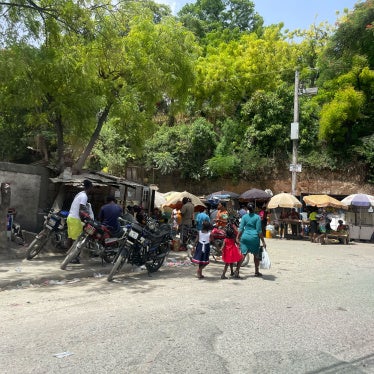This week, lawmakers in Honduras will have the chance to allow some women access to abortion, reversing restrictions first imposed more than 30 years ago. Under the current law, terminating a pregnancy is illegal and carries a heavy prison sentence, unless the woman’s life is in danger. But Congress is reportedly considering loosening abortion restrictions, although any proposed text is not yet public.
If the law allows women and girls who fall pregnant after rape to seek an abortion, it could have a huge impact. Sexual violence rates in Honduras are high, and the abortion ban – even in cases of rape – leaves women and girls in the lurch. Honduran women’s rights activists estimate that approximately 17 percent of the clandestine abortions obtained by Honduran women and girls are for pregnancies resulting from rape. Girls are particularly affected, with some data indicating that 22 percent of all hospital discharges stemming from abortion complications involve girls between 10 and 19 years old.
Nearly all deaths and injuries from unsafe abortion occur in countries where abortion is severely restricted. When abortion is illegal, women seek clandestine abortion services from unskilled providers or under unhygienic conditions. Sometimes they use medicines to induce abortion but without proper medical supervision. This creates a significant risk of death or injury.
The United Nations has expressed concern about the criminalization of abortion “resulting in a high number of women and girls seeking unsafe abortion and increasing maternal mortality.” While reliable data is scarce, research indicates that criminalization has indeed increased maternal death rates in Honduras. It has even prevented pregnant women from getting life-saving medical treatment, such as chemotherapy, if it might harm the fetus.
Women and girls have been bearing the brunt of Honduras’ extreme abortion restrictions for too long. On Tuesday, the Honduran lawmakers can and should make available a procedure that can save more women’s lives. The government should be working towards full decriminalization, but at a minimum it should immediately allow abortion when the woman’s health is at risk, when the pregnancy results from rape, or if the fetus is not viable. Will legislators do the responsible thing, and take a life-saving step for women and girls?








